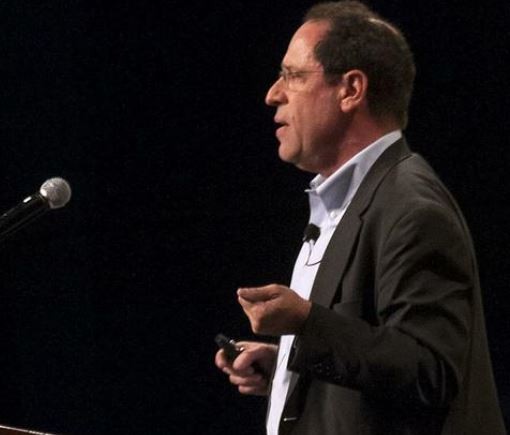Spokane, other cities are problem-solvers in dysfunctional political world, Urban scholar tells GSI meeting
Thursday, September 28, 2017

(as reported in The Spokesman Review by Nichoas Deshais)
Bruce Katz wasn’t prepared for Spokane. Specifically, for its waterfalls.
The urban scholar from The Brookings Institution was in town to deliver the keynote address at Greater Spokane Incorporated’s annual meeting Wednesday, and he mentioned Spokane Falls almost immediately.
“I didn’t know you had a waterfall in the middle of the city,” he said. “You had me at the waterfall.”
But it was more than the natural beauty of the city that impressed Katz. In this age of “angry populism” and hamstrung federal and state governments, Katz sees cities and metro regions – Spokane among them – as the “vanguard of problem-solving.”
In a speech that went around the world, Katz kept returning to Spokane and its ability to shape its future.
“The main message is, ‘It’s up to you,’ ” he said. “The cavalry’s not coming. It’s really not coming. … The power is here. The future is here.”
Cities face huge economic challenges that Washington, D.C., can’t solve, Katz said. As centers of innovation and productivity, and nimble in decision-making, cities have the potential to find their own solutions and influence global events.
Katz said politics are being upended, to the benefit of municipalities. Power will shift from the federal government to the local level, and responsibilities of the public sector will move to private, public and civic actors.
The diversity inherent to cities in age, race and other demographics, is a “huge strength of the United States.” Globalization has only enhanced the power of cities, which Katz predicted would be “natural vehicles for mitigating climate change.”
The shift in political power from national governments to cities is what Katz called “new localism,” and it will be “the governing philosophy of the 21st century.”
Before the crowd of nearly a thousand people, which included elected officials and business leaders, Katz said new ways of governing, financing and identifying growth had to be devised.
He pointed to Pittsburgh, Indianapolis and Copenhagen as examples.
“Pittsburgh was the steel capital of the entire world,” he said. “It collapsed in the late 1970s.”
Around the same time, the Three Mile Island Nuclear Generating Station failed, leaking nuclear waste into the area near Harrisburg, Pennsylvania.
What could’ve been unmitigated disaster led to a resurgent Pittsuburgh and its “robotics row,” thanks in part to Carnegie Mellon’s investment in robotics and artificial intelligence to help clean up the waste.
“If you want to hang out with drones and robots, go to Pittsburgh,” Katz said.
Indianapolis also faced a dire future in the 1970s, when men hunted diseased pigeons with shotguns on Sundays in the city core.
The city, through “an incredible institutional effort,” became the amateur sports capital of the world, and then one of its biotech capitals. The city was lifted by perfecting the “mechanics of collaboration” between private, public and educational institutions.
“You need to think long term. Pittsburgh is a 40-year success story; Indianapolis is a 40-year success story,” Katz said. “I would argue Spokane is a 40-year success story because that’s when Expo” launched the turnaround for downtown Spokane.
Finally, Katz looked to Copenhagen as a model for Spokane. By creating a series of “publicly owned, privately driven corporations,” the Danish capital came back from huge debt and poorly planned city building to be the premier transportation city in the world.
“Not one tax dollar goes to the public subway system,” he said. Instead, the city’s real estate and other assets are managed by the Copenhagen City and Port Development Corp., which is insulated from political influence and operated like a profit-seeking company.
While looking to these as models, Katz urged Spokane to “be the best Spokane.”
“Don’t try to be another Seattle. They basically priced themselves out for most working people,” he said. “You are highly distinctive. You don’t need to copycat. You need to double down.”
Photo credit: Urban scholar Bruce Katz, the inaugural Centennial Scholar at The Brookings Institution, addresses Greater Spokane Incorporated’s Annual Meeting at the Spokane Convention Center on Wednesday, Sept. 27, 2017. (Kathy Plonka / The Spokesman-Review)